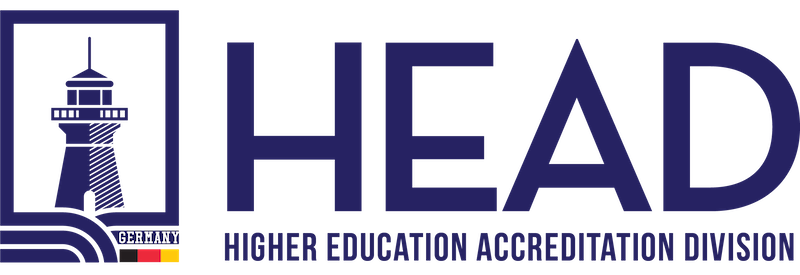The importance of Programmatic Accreditation

Before you apply for admission to a college or university, ask whether the institution and the specific degree program are accredited. Accreditation is a form of quality control, ensuring that institutions of higher education satisfy certain standards.
Programmatic accreditation validates that established standards of excellence for an educational program are met. These standards are designed to ensure that a Program has the resources and administrative support required to provide the quality of training for success in the industry.
Benefits of Programmatic Accreditation:
HEAD Programmatic Accreditation helps HEIs demonstrate the quality of training programs, including the processes from enrollment, program implementation, ensuring the program’s quality, ensuring the training goals to the lecturers’ quality, and the students’ satisfaction after completing the course
HEAD Programmatic Accreditation Requirements
- An institution will be required to have institutional accreditation with a recognized accreditation agency or government.
- Has a current and accurate catalog setting forth the institution’s governance, mission, institutional goals, specific objectives, academic program requirements and courses.
- An institution must make information available to the public concerning student achievement and institutional performance outcomes.
- An institution must ensure access to resources necessary to support courses.
- Satisfy the minimum requirement for biblical/theological studies.
In some countries like Switzerland, accreditation is voluntary. Colleges/universities/institutes do not need accreditation in order to open their doors or offer educational programs. On this case, the accreditation will offer a distinction for students who are seeking college/university/institute admission
Source: HEAD
Would you like to speak to one of our Higher Education Accreditation Expert? Just submit your details and we’ll be in touch shortly. You can also email us if you would prefer.

